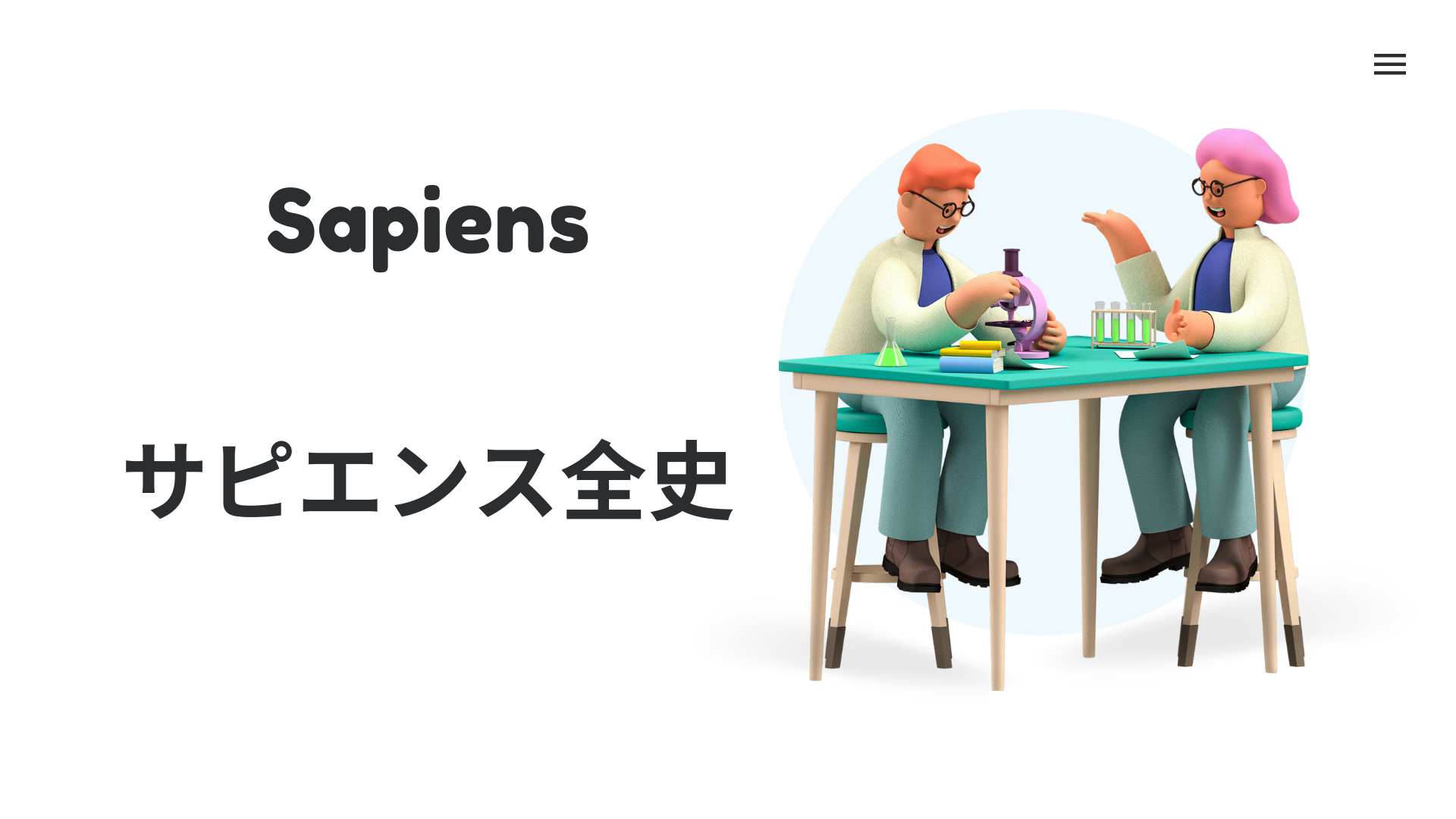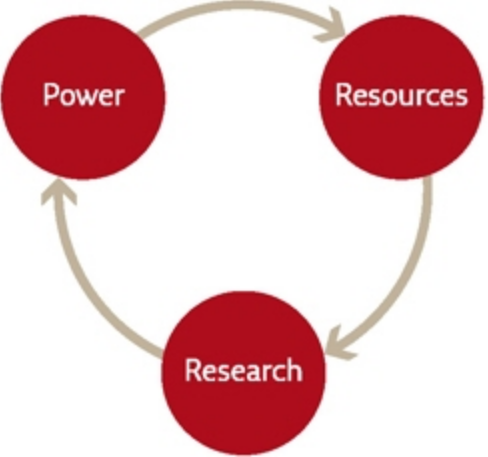
英語でSapiens を読もう📖#14
For English learners!
Hello everyone, how’s your English learning journey going?😃 Reading an English book is sometimes a long journey. You might inadvertently stop if you are alone. But no worries. You are at the right place already. I would like to explore an English book here so that you can try reading the book with me. We are not alone. Let’s enjoy a fun time reading!
The book, which I picked up this time, is called Sapiens, published by Yuval Noah Harari. The Amazon Kindle link below allows you to read up to chapter 3. Today, I am covering chapter 14.
You can check out my recommending strategy of reading as well as a bit of information about this book with a link below. Okay then, let’s get started📖
日本語学習者のみなさん!
みなさん、こんにちは。あずみです。日本語の勉強はどうですか?やさしい日本語で読むのに飽きてきたあなたに、もうワンランク上のリーディングをお届けしたい、ここはそんなブログです。英語部分で私が書いていることを、日本語で書くならこんな感じというのがテーマです。ぜひ、カジュアルな日本語のライティング表現を体験しながら、同時に興味深い本の内容も楽しんでボキャブラリーの幅を広げてくださいね。😃
英語の勉強、はかどってますか?英語の本を読むのって長い旅路ですよね。うっかり止まって挫折してしまうのはとても簡単です。でもこのブログを読んでいるあなたはだいじょうぶ。そんなあなたを応援するのがこのブログです。このブログで私は本を取り上げ、掘り下げていきたいと思いますので、よかったら私といっしょにこの本にチャレンジしてみてください。
今回読む本は、ユヴァル・ノア・ハラリさんの「サピエンス全史」です。本の内容はアマゾンキンドルのリンクから試し読みで確認してみてください。
また、こちらのリンクから英語の本のオススメの読み方について取り上げています📖ぜひ確認してみてくださいね。さぁ、14章を読みましょう。
Ch.14 The Discovery of Ignorance
第14章 無知の発見と近代科学の成立
Grasp the structure!🦧構成を把握する

To grasp the chapter, you just try to see its hierarchical configuration. I strongly recommend drawing it either physically or virtually.
階層構造を追い、内容を把握します。実際にメモを取りながらするとはかどります。
🚧工事中 🚧
The attitudes of modern science for discovering the rules, that govern the natural world, differ from previous traditions of knowledge in three ways.
If the scientific evidence shows that many of those myths are doubtful, how can we hold society together?
Modern culture has been willing to embrace ignorance while it has relied on religious and ideological beliefs to justify and finance its research.
🚧工事中 🚧
🚧工事中 🚧
The advent of the capitalist system and the Industrial Revolution intertwined with science, industry, and military technology.
🚧工事中 🚧
Ignorance bears problems. When one admits their ignorance, they can use scientific knowledge and would be able to uncover an unknown thing. And, progress can be achieved.
Ideological, political, and economic forces push science in a certain direction and shape physics, biology, and sociology while neglecting others.
🚧工事中 🚧
Summarize the chapter concisely🦧章を一言でまとめる

To summarize, check the hierarchical configuration and make sentences with important points of each.
階層構造の各部分のポイントを確認して、文にしてまとめます。
The changes that Sapiens made in the last 500 years are extraordinary. They came to believe in their ability to obtain new powers through science research. It is called the Scientific Revolution. There are three unique attitudes Sapience cultivated. Attitude 1: the willingness to admit ignorance. Attitude 2: no dogma, but the core of research methods. Mathematics and statistics have become the center of study. Attitude 3: Knowledge is what empowers Sapiens. Rulers and business people now find science useful for their growth. As result, they had wars, which were caused by scientific productions. Death was an insoluble problem before, however, it took only a single century for science to transform it into a technical problem that has a technical solution. Science is shaped by economic, political, and religious interests. These forces also determine what to do with discoveries. Science research needs an alliance with some religion or ideology.
サピエンスが過去500年間に達成した変化は驚くべきものです。彼らは科学研究を通じて新しい力を獲得できるという能力を信じるようになりました。それは科学革命と呼ばれています。サピエンスが培ってきた3つのユニークな態度があります。態度1:無知を意欲的に認めること。態度2:教義を作らず、研究方法を中核に据えること(数学と統計が研究の中心)。態度3:知識を使って力を得ること。統治者や経営者は、科学が彼らの権力の拡大に役立つと気付き、それは科学を使った製造物による戦争という結果を引き起こしました。死は以前は解決できない問題でしたが、たった一世紀あまりで科学がそれを解決策を持つ技術的な問題に変えてしまいました。科学は今、経済的、政治的、宗教的利益によって形作られています。これらの力はまた、発見を何に役立てるかという決定権を持っています。つまり科学研究を行うためには、研究には宗教やイデオロギーとの共同が必要となるということです。
Make questions to discuss🦧ディスカッション用の質問を作ろう

To discuss, make questions. It gives you a great topic to talk about in English.
本について話し合うための質問を作ります。作った質問は英語で話をするときのいい話題になりますよ。
What does it mean? How are the parts connected? what is the reason for people’s actions?
There is more than one possible answer, but the viewer’s opinion is based directly on the text.
ここはどういう意味でしょう?これらの箇所はどう繋がっていますか?この行動にはどんな意味がありますか?
答えは2つ以上考えられますが、質問の答えは本文に直接基づいている必要があります。
My opinion: According to Definitions from Oxford Languages, the definition of ‘Sugar daddy’ is the following; a rich older man who lavishes gifts on a young woman in return for her company or sexual favors. In this section, the author emphasizes that science itself doesn’t have its own priority, interest, or favor and that it is shaped by economic, political, and religious interests. As a young lady enjoy her sugar daddy’s support in the exchange for her service, science enjoys its sugar daddy’s support in exchange for its discovery. Both need their sugar daddies to enjoy what they want. The difference is that a young lady is an adult and chooses consciously to be supported as means of living, meanwhile science is a genuine and forever baby, and sugar daddy is actually literally a daddy, who shapes this baby’s interests, directions, applications, and all of the future completely since this baby doesn’t have its own consciousness. Therefore it is much easier to handle this baby unlike a human baby or a young lady. And the sugar daddy can completely exploit all the achievements science can attain without any intervention and prosper for only his own sake.
私の意見:Oxford Languagesの定義によると、「シュガーダディ」の定義は次のとおりです。『女性の帯同や性的な接待を見返りに、若い女性に贈り物を惜しみなく与える金持ちの年上男性。』このセクションで著者は、科学自体には優先順位、関心、または好意はなく、経済的、政治的、および宗教的関心によって形作られていることを強調しています。若い女性が自身の提供するサービスと引き換えに愛人からの支援を享受している一方、科学はその発見と引き換えに支援者からの援助を教授しています。双方とも、自身が望むもののために彼らのシュガーダディを必要としています。双方の違いはというと、若い女性は大人であり、生きる手段としてサポートされることを意識的に選択しているのに対して、科学は根本的にそして永遠に赤ちゃんのままであるということです。シュガーダディは実際に文字通り父親であり、もちろん赤ちゃんには自我がないため、この赤ちゃんの興味、方向性、用途、そして将来のすべてを完全に父親が形作ります。したがって、人間の赤ちゃんや若い女性とは異なり、この赤ちゃん(=科学)の取り扱いははるかに簡単です。シュガーダディは、誰からも邪魔されずに科学が達成するすべての成果を完全に活用し、自身の繁栄のためだけに利用することができます。(※お分かりの通り、日本語の翻訳はこの“Daddy”の持つ重要な意味を完全に消してしまっています。科学と科学の支援者との関係を説明する重要な手がかりの一つを読者から奪ってしまっていると思うのは私だけでしょうか。)
five questions for discussion🦧ディスカッション用の5つの質問
How does this make me feel? What does it remind me of?
There are many correct answers that are related to one’s experience; they can be found outside of the text/speech.
この箇所はどんな風に感じますか?何を思い出させますか?
個人の経験に関連するたくさんの答えが本文の外で見つけられることが考えられます。
What does it say?
One correct answer is found in the text.
なんと言っていましたか。
答えは一つです。テキスト内でみつけることができます。
What does it mean? How are the parts connected? what is the reason for people’s actions?
There is more than one possible answer, but the viewer’s opinion is based directly on the text.
ここはどういう意味でしょう?これらの箇所はどう繋がっていますか?この行動にはどんな意味がありますか?
答えは2つ以上考えられますが、質問の答えは本文に直接基づいている必要があります。
What is the message beyond this presentation? What are the greater issues or questions this piece deals with?
The presentation is not directly referenced in the question. There are many possible answers found outside of the presentation, but it’s a starting point.
このトピックが伝える、もっと大きなメッセージはなんでしょう?このトピックの先にどんな大きな問題が見えますか?
この質問は、このトピックと直接リンクする必要はありません。この話の外側にたくさんの答えがあるでしょう。でも、このトピックがいいスタートポイントになります。
How effective is the presentation in whole or in part? Why did the speaker/author make these choices and how well do they work?
Many possible answers can be found outside of the presentation but it’s a reference.
この箇所は全体の中で/この部分においてどう効果的な役割を果たしていますか?どうして話者はこのような表現をしましたか、またそれはどのように機能していますか?
たくさんの答えが本文の議論の外でひとつの例としてみちびかれる可能性があります。
Expressions and terms🦧覚えておきたい単語・表現

Pick some terms that you are unfamiliar with from sentences you high-lightened and memorize them because you need them to discuss this chapter!!
読みながらハイライトした特に重要だと思う文の中から、使い慣れていない言葉を選んで覚えましょう。なぜかというと、ディスカッションで意見や考えを言うために必要になるからです。
| term | example sentence |
|---|---|
| ignorance | Ancient traditions of knowledge admitted only two kinds of ignorance. |
| bewilder | Prophets would have been bewildered if you told them that you must first study statistics. |
| constitute | A theory that enables us to do new things constitutes knowledge. |
| in alliance with | Scientific research can flourish only in alliance with some religion or ideology. |
| 単語 | 例文 |
|---|---|
| 無知 | 古代の知識の伝統は、2種類の無知しか認めていませんでした。 |
| 戸惑う | あなたが最初に統計を研究しなければならないと預言者に言っていたら、預言者は戸惑ったことでしょう。 |
| 構成する | 私たちが新しいことをすることを可能にする理論が知識を構成します。 |
| 協同する | 科学研究は、宗教やイデオロギーと手を結んではじめて繁栄することができます。 |

Chapter 14 is about the relationship between science and Sapiens. It was very interesting to know that science has grown its importance in Sapiens society for the last 500 years significantly. Did you find any interesting, how did the author describe the topic? I found it especially interesting how he tries to depict the relationship between science and Christianity. Before science’s existence, it was the era of religion. When science began to grow, many people who related to Christianity contributed to it. It seems to me that Christians themselves passed the baton of hegemony. Benjamin Franklin’s kite experiment is described as the achievement that disarm the gods. Scottish two ministers, a clergyman who founded the science of demography, and Charles Darwin, who was emphasized that he almost became a pastor in the section of The Scientific Dogma.
Meanwhile, there is one part that relates to Christianity and confuses me. It is in the section of The Ideal of Progress. In order to describe how poverty was taught in Christianity, the author uses the episode in the New Testament. A woman anointed Christ with precious oil. Then, his disciples scold her for wasting something precious instead of giving it to the poor. And, Christ told her that poverty is always there, whereas I am not always here. It was not short and sweet, rather distracting. He was supposed to quote something to describe how poverty was captured in Christianity, however, he seems to end up showing how their guide was not consistent. In the end, I had to ask other friends to interpret this part, and we all agreed this part was very mean to Christianity.
第14章は、科学とサピエンスの関係を説明した章です。科学が過去500年間、サピエンスの社会でその重要性を大幅に高めてきたことがよくわかる非常に興味深い章でしたよね。著書のこのトピックについての説明で気になったり、興味深く感じた箇所はありませんでしたか?私はありましたよ!著者の科学とキリスト教の関係の描写の仕方がとても興味深いと思いました。科学が誕生する前は、宗教の時代だったといえると思います。科学がその成長を始めたとき、キリスト教に関係する多くの人々がその成長に貢献しました。その描写はまるで当世の覇権のバトンを握るキリスト教徒達が、それを次の時代の覇権を握ることになる科学にバトンを託しているように思えました。ベンジャミン・フランクリンの凧の実験は、神々の武装解除した成果として説明されています。統計学の口火を切ったスコットランドの2人の牧師、人口統計学を創設した聖職者、そして進化論のチャールズ・ダーウィンもキリスト教と紐づけて紹介されていますよね。
一方で、キリスト教に関連する部分で私を混乱させる部分もありました。それは『進歩の理想』セクションにあります。キリスト教で貧困がどのように教えられていたかを説明するために、著者は新約聖書のエピソードを使用しています。ある女性がキリストに貴重な精油を捧げます。すると弟子たちは、彼女が貧しい人々にそれを与えずにキリストに与えたことを、貴重なものを無駄にする行為と叱責します。しかし、キリストはこう返答します。「貧困はいつもそこにあるけれども、私はいつもここにいるわけではない(だから、私に聖油を捧げることは正しい行いである)。」このエピソードの使用のされ方は「貧困がどのように考えられていたかを紹介する」ことよりも、むしろ「キリストのエゴイスト的な側面が聖書に描かれていることを強調したいがために引用されたかのようで、私にとっては非常に気を散らすものでした。著者はキリスト教に一貫性の欠如があると訴えたかったのかなぁと、なんだか悪意があるよなぁと感じました。結局、この部分をどう解釈するべきかがわからなくなり、友人に解説を頼む羽目になったのですが、友人達も私も、著者のこの部分の描写は彼のキリスト教に対する悪意の現れと見て取れるという見解で一致しました。






コメント